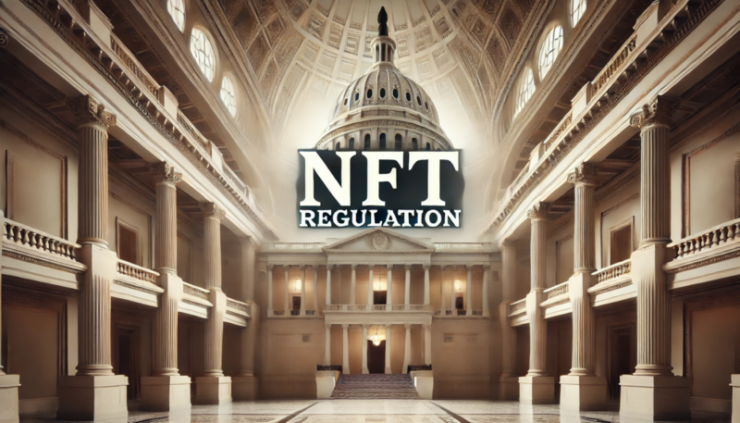The regulation of non-fungible tokens (NFTs) in the United States remains a complex and challenging issue, drawing increasing attention from lawmakers, regulators, and legal experts. Following the White House Executive Order on cryptocurrency issued on January 23, 2025, the U.S. government has intensified its focus on digital assets, including NFTs. Congress and regulatory agencies such as the Securities and Exchange Commission (SEC) and the Commodity Futures Trading Commission (CFTC) are working to clarify the legal framework surrounding these unique digital assets.
Unlike cryptocurrencies such as Bitcoin, NFTs are unique, non-interchangeable tokens recorded on a blockchain, representing ownership of digital or real-world assets. Their potential applications extend far beyond digital collectibles, spanning sectors such as real estate, healthcare, and intellectual property. Some projections estimate the global NFT market could reach $265 billion by 2032, underscoring the urgency for a clear regulatory approach. However, existing legal frameworks provide limited guidance, leaving NFT creators and buyers in a state of uncertainty.
NFTs: Securities or Commodities?
A key issue in NFT regulation is whether these digital assets should be classified as securities under U.S. law. The SEC has taken an active role in enforcing securities laws in the NFT space, applying the Howey Test to determine whether NFT transactions constitute investment contracts. Notably, the SEC pursued enforcement actions against NFT projects such as Impact Theory and Stoner Cats, arguing that their marketing strategies led purchasers to expect profits based on the efforts of the creators. These cases sparked debate among SEC commissioners, with dissenting voices warning that the agency’s broad interpretation of securities law could overreach into the realm of digital art and collectibles.
The proposed New Frontiers in Technology Act (NFT Act), originally introduced in 2024, attempts to address this issue by distinguishing “Covered Non-Fungible Tokens” from securities. Under the bill, NFTs primarily intended for personal use—such as art, music, and video game assets—would not be considered securities unless they are marketed as investment opportunities. However, significant gaps remain, particularly regarding NFT marketplaces and secondary trading platforms. The NFT Act also mandates a comprehensive study of the NFT market by the Comptroller General, further delaying regulatory clarity.
Legal Challenges and the Future of NFT Regulation
Despite growing scrutiny from the SEC, recent court rulings have not definitively settled the classification of NFTs under securities laws. Cases such as Friel v. Dapper Labs and Dufoe v. DraftKings have examined whether NFT transactions meet the requirements of the Howey Test, with courts reaching mixed conclusions. Additionally, NFT marketplaces like OpenSea face legal uncertainties, as demonstrated by the SEC’s issuance of a Wells Notice to the platform, signaling potential enforcement action.
Beyond securities law, other regulatory considerations loom large. The CFTC has suggested that some NFTs could be classified as commodities, while the Financial Crimes Enforcement Network (FinCEN) is evaluating whether certain NFTs fall under money transmission regulations. Intellectual property rights, cybersecurity risks, and compliance with anti-money laundering laws further complicate the regulatory landscape. The Office of Foreign Assets Control (OFAC) has also flagged NFTs as a potential means of evading U.S. sanctions, adding another layer of legal risk for NFT market participants.
As policymakers grapple with these challenges, industry participants must navigate a shifting legal environment with caution. The ongoing legislative and regulatory efforts, including revisions to the broader crypto bill known as FIT21, may eventually bring greater clarity. Until then, NFT creators, buyers, and platforms must remain vigilant, as the future of NFT regulation in the U.S. remains far from settled.





